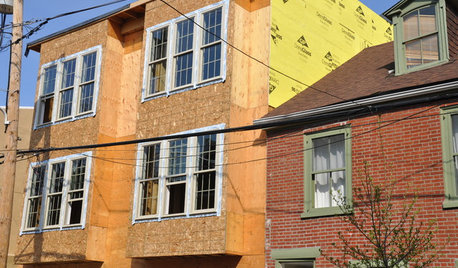Evaluating comps
mary_md7
15 years ago
Related Stories

MOVINGHow to Avoid Paying Too Much for a House
Use the power of comps to gauge a home’s affordability and submit the right bid
Full Story
WORKING WITH PROS5 Steps to Help You Hire the Right Contractor
Don't take chances on this all-important team member. Find the best general contractor for your remodel or new build by heeding this advice
Full Story
CONTRACTOR TIPSBuilding Permits: When a Permit Is Required and When It's Not
In this article, the first in a series exploring permit processes and requirements, learn why and when you might need one
Full Story
SELLING YOUR HOUSE15 Questions to Ask When Interviewing a Real Estate Agent
Here’s what you should find out before selecting an agent to sell your home
Full Story
MOVINGThe All-in-One-Place Guide to Selling Your Home and Moving
Stay organized with this advice on what to do when you change homes
Full Story
BEFORE AND AFTERSKitchen Rehab: Don’t Nix It, Fix It
A small makeover makes a big impact in a traditional kitchen in Atlanta with great bones
Full Story
SELLING YOUR HOUSEFix It or Not? What to Know When Prepping Your Home for Sale
Find out whether a repair is worth making before you put your house on the market
Full Story
REMODELING GUIDESConsidering a Fixer-Upper? 15 Questions to Ask First
Learn about the hidden costs and treasures of older homes to avoid budget surprises and accidentally tossing valuable features
Full Story





lucy
berniek
Related Professionals
Royal Palm Beach Architects & Building Designers · South Barrington Architects & Building Designers · Annandale General Contractors · Gallatin General Contractors · Midlothian General Contractors · Nampa General Contractors · Natchitoches General Contractors · Pocatello General Contractors · Rancho Cordova General Contractors · San Carlos Park General Contractors · Torrington General Contractors · Tuckahoe General Contractors · Waimalu General Contractors · Watertown General Contractors · Williamstown General Contractorsmostone
notto
berniek
notto
berniek
hadley
danihoney
berniek
berniek
ncrealestateguy
mary_md7Original Author
berniek